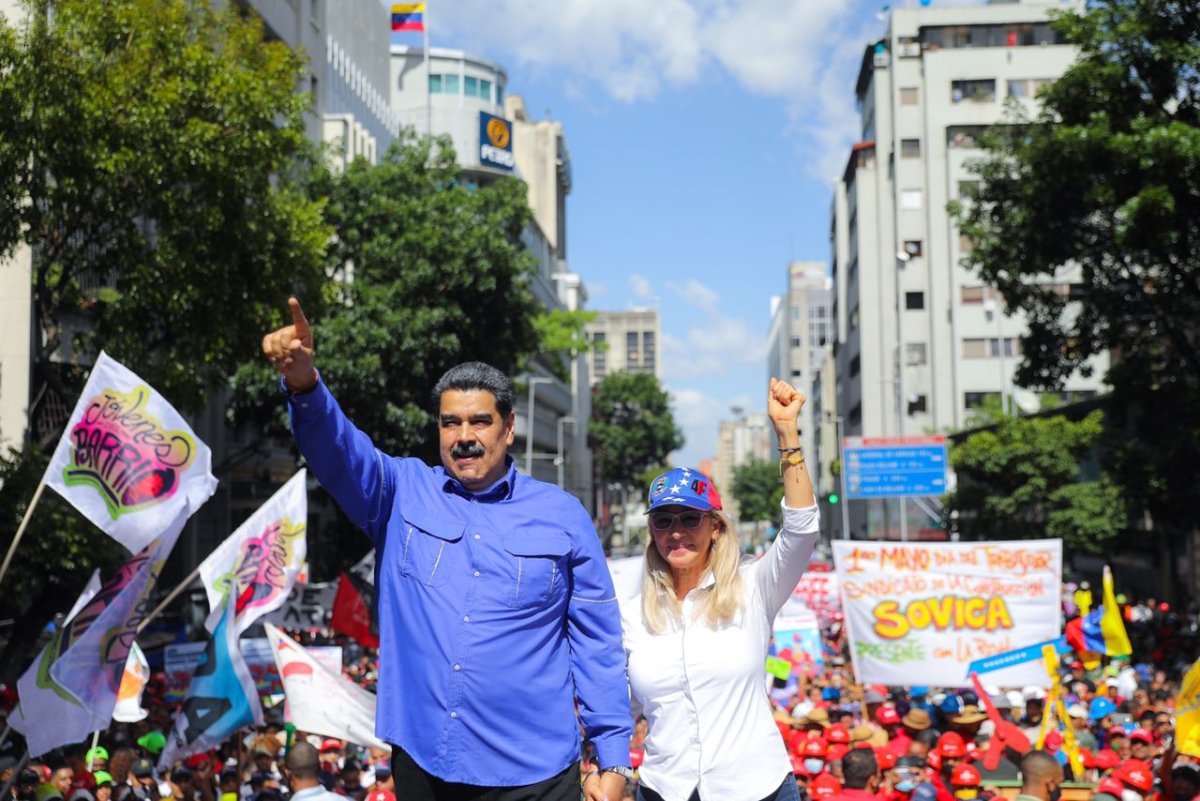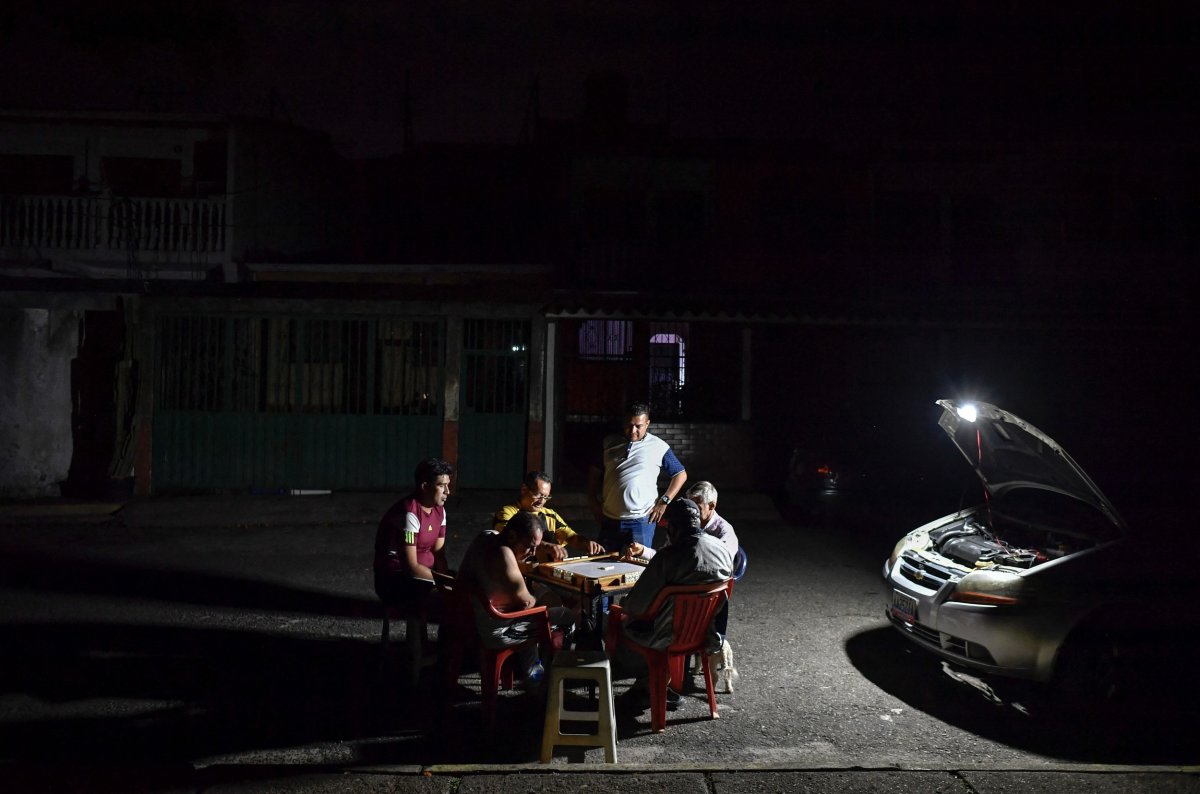Just one day after relaxing some restrictions against leftist-led Cuba, President Joe Biden's administration has announced an easing of certain sanctions against oil-rich Venezuela. The back-to-back moves signal a new focus on the Western Hemisphere, at a time when the United States has largely been engaged on issues in Europe and Asia.
A senior Biden administration official told reporters Tuesday that California-based Chevron Corporation would be permitted to negotiate its license with Venezuela's state-owned oil company, PDVSA, with the potential for conducting future activities, without yet reversing restrictions that would allow it to do business in the country.
The official said that "fundamentally," the two sides are "just allowed to talk."
According to the official, the move came at the behest of Venezuela's U.S.-backed opposition led by Unity Platform head Juan Guaidó, whom the U.S. and a number of its partners recognize as the country's interim president, as it attempts to negotiate with the administration of Venezuelan President Nicolás Maduro. Then-U.S. President Donald Trump cut ties with the socialist leader in January 2019 and imposed sweeping sanctions on the country.
Asked if the decision had to do with a global flux in oil and gas prices brought on by a coalition of sanctions led by the U.S. and its allies against Russia over its war in Ukraine, the official said that domestic developments in Venezuela remained the main priority.
"Our focus has been on supporting the interim government and the Unity Platform to get the regime to take steps toward free and fair election through negotiation," the official said. "That has been the focus entirely, not the oil sector, not oil prices."
The official added that the administration would "calibrate our sanctions policy accordingly to increase pressure or alleviate pressure on the basis of ambitious, concrete and irreversible outcomes that empower the Venezuelan people to determine the future in their country through democratic elections."
Newsweek has contacted the Venezuelan Foreign Ministry and Chevron for comment.

While often critical of its predecessor's "maximum pressure"-style approach designed to coerce policy changes against adversaries through economic isolation and latent military threats, until now the Biden administration has largely maintained much of Trump's policies against left-wing Cuba, Venezuela and Nicaragua.
But the administration has experienced regional blowback in the leadup to the Summit of the Americas set to be held next month in Los Angeles. Mexican President Andrés Manuel López Obrador, a leader of the left-wing National Regeneration Movement (Morena) party, has threatened to boycott the event if all countries were not invited, and several other Caribbean leaders have followed suit.
On Tuesday, López Obrador, whose country has also hosted discussions between Maduro and Guaidó's rival administrations, referred to the six-decade U.S. trade embargo against Cuba as a "genocidal policy."
The senior Biden administration official said that the latest announcements made on Venezuela and Cuba were "completely separate from what the Mexican president has said with regard to Cuba."
The official broke down the administration's "policy with regard to undemocratic actors and sanctions policy" into three parts.
The first is to "always support dialogue, but supportive dialogue, real dialogue that leads to concrete outcomes." The second is "recognizing that for sanctions policy to be effective and for negotiations, there needs to be a broad international consensus in favor of the negotiations and in favor of the use of sanctions policy." And the third is "trying to stand up very strongly in favor of human rights and against criminal actors."
But global opinion remains divided when it comes to the U.S. positions on Cuba and Venezuela. Last year marked the latest of two decades of near-unanimous United Nations General Assembly votes condemning the long-running U.S. sanctions against Cuba, and Maduro remains recognized by a number of influential powers including not just U.S. rivals China and Russia, but also partners such as India and Turkey, as well as the United Nations.
Under both Trump and Biden, the U.S. has also made narrow contacts with the Venezuelan government, most recently in March when U.S. officials made a rare trip to Caracas to discuss energy security in light of planned sanctions against Russia's oil and gas industry.
A second senior administration official on Tuesday's call said continued bilateral engagement helped lead to the release of two detained U.S. citizens earlier this month. One of the pair, Gustavo Cárdenas, is an executive of Houston-based oil and gas firm Citgo, and one of six individuals commonly referred to as the "Citgo 6" held in Venezuela under terms that Washington considers illegal.
The U.S. has also accused a number of Venezuelan officials of criminal activity such as narcoterrorism and has pressed charges against Maduro and some of his top officials. Colombia-born businessman Alex Saab was arrested in Cape Verde while refueling his plane en route to Venezuela from Iran in 2020 and was extradited to the U.S. in late 2021 to face money laundering charges.
Venezuela has demanded his release, citing diplomatic immunity stemming from his 2018 appointment as a special envoy charged with ensuring the delivery of food aid and humanitarian assistance in the wake of Trump's first tranche of sanctions issued against the country the previous year. These restrictions were followed by a sharp downturn in Venezuela's economy that has led to spiraling inflation and shortages of goods and resources.

As is the case with Cuba, the Biden administration has also faced domestic pressure against measures that would relax Trump's hardline policies against what former national security adviser John Bolton once dubbed the "troika of tyranny" constituting the socialist-led countries of Cuba, Nicaragua and Venezuela.
A day after Republican Florida Senator Marco Rubio and Democratic Senate Foreign Relations Committee Chair Bob Menendez issued separate statements criticizing Biden's easing of Cuba restrictions, they again came out against the White House's new directive on Venezuela.
Rubio accused Biden of "strengthening illegitimate, corrupt regimes in our hemisphere that undermine American national security," while Menendez argued that "giving Maduro a handful of undeserved handouts just so his regime will promise to sit down at a negotiating table is a strategy destined to fail."
Even with international support, including that of the U.S. and the Organization of American States, however, Guaidó has failed to unseat Maduro. Fractures have also emerged within the opposition itself, leaving his own prospects of gaining power uncertain as Maduro remains firmly at the helm of the country.
Uncommon Knowledge
Newsweek is committed to challenging conventional wisdom and finding connections in the search for common ground.
Newsweek is committed to challenging conventional wisdom and finding connections in the search for common ground.
About the writer
Based in his hometown of Staten Island, New York City, Tom O'Connor is an award-winning Senior Writer of Foreign Policy ... Read more
To read how Newsweek uses AI as a newsroom tool, Click here.








